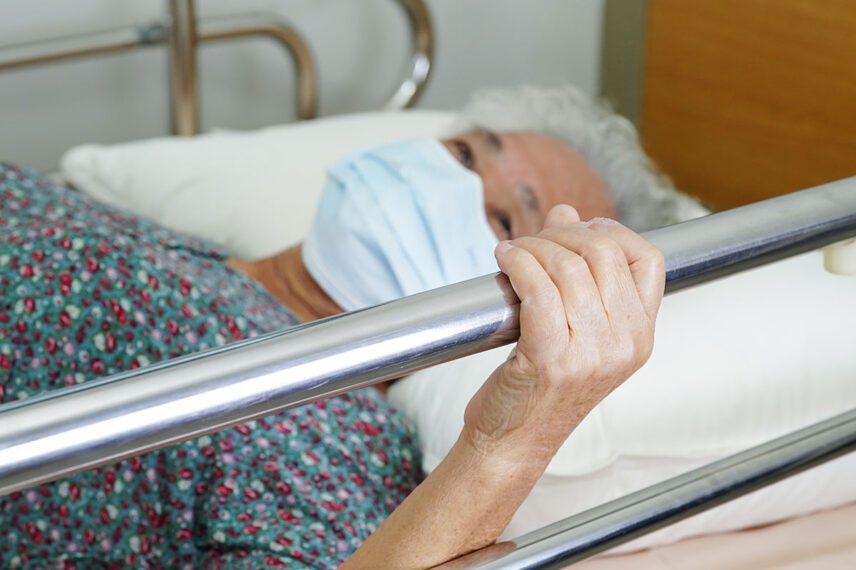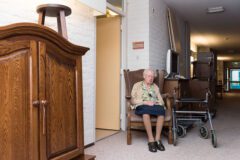Are Bed Sores a Result of Nursing Home Neglect?

Bed sores are commonly found in nursing homes due to patients who are bedridden or unable to move. If left untreated, they can cause complications such as infections to develop.
Often, bed sores can be an early warning sign of negligence or abuse, especially if left untreated. However, a good nursing home staff should always use vigilance and carefully monitor patients most prone to developing bed sores.
If your loved one has suffered injury or complications due to untreated bed sores, you are entitled to seek legal action against those responsible, so it’s imperative to seek the counsel of a lawyer to guide you through the process.
What are Bedsores?
By medical definition, bed sores are known as decubitus ulcers or pressure sores. They are typically caused when a resident has been lying in the same position in a bed for extended periods of time. Open wounds, commonly called bed sores, will occur when a person’s weight restricts blood flow from reaching areas of the skin’s surface.
Bed sores begin as red or purple marks on the skin and eventually rupture through to the skin’s surface, causing wounds to form. If these pressure spots are not relieved, the tissue will begin to die, leading to open wounds. Sometimes, these wounds can become extremely severe and even penetrate through enough layers of tissue to reach the bone.
Potential Risks of Bedsores
If left untreated, bedsores can lead to complications such as squamous cell carcinoma (a type of cancer), infection, sepsis, or even death. There are four stages in the progression of bedsores, including:
Stage 1
The easiest to treat, as the wound has not yet “burst.” They often appear as a red mark that may be warm, tender, or firm to the touch.
Stage 2
The wound has broken through the outer layer of the skin along with the dermal layer. They often look like blisters.
Stage 3
The bedsore becomes a deeper wound, exposing fat tissue beneath the dermis. It may appear like a crater or a hole in the skin, with a yellowish color around the rim.
Stage 4
The most severe stage. The wound exposes tendons, muscles, or even bone. The rim of the wound contains dead tissue that appears dark or crusty.
Who is Most Likely to Develop Bedsores?
Patients who lack mobility or are bedbound are most likely to experience bedsores. This often includes patients who:
- Have injuries that require bed rest
- Have been paralyzed
- Are in poor health
- Are Elderly
- Have been sedated
- Are experiencing surgical recovery
- Are in a coma
- Are obese
How are Bedsores Prevented?
Bedsores are most commonly found in bedridden patients. Because the patient is immobile or unable to move positions easily, the constant pressure that accumulates between the immobile areas of their body and the bed can lead to pressure sores developing.
Fortunately, pressure sores are easy to prevent, and many hospital staffs are well-versed in both preventing and monitoring them. Skilled staff members will rotate the positions of patients every few hours or place towels around areas prone to pressure sores to prevent them from developing. Additionally, providing proper bed rails and support systems to allow patients a degree of mobility can help to increase movement and reduce the risk of bedsores. Adequate nutrition and hydration can also improve skin vitality and reduce the risk associated with healing from bedsores.
If the wound has progressed, then medical treatment is necessary, and treatment may include cleaning the wound, removing damaged tissue through debridement, bandaging the wound, administering antibiotics, and performing surgery if necessary.
What Can I Do If My Loved One Experienced Nursing Home Negligence?
If your loved one developed bedsores as a result of nursing home negligence, you are entitled to take legal action. An experienced nursing home abuse attorney will guide you through the legal process and work hard to ensure you receive financial compensation for any damages you may have experienced, including:
- Medical Bills
- Pain and Suffering
- Costs of Relocating Your Loved One to a Better Facility
- And More
Conclusion
Despite the fact that nursing home facilities are intended to keep loved ones safe, unfortunately, cases of abuse and neglect are far more common than they should be. Bedsores are often a warning sign that nursing home negligence is occurring. If your loved one shows signs of bedsores, it’s essential to have them medically evaluated right away before the wounds progress into something more serious. A skilled nursing home abuse lawyer should assess your case and seek justice against those responsible for their negligent actions.






